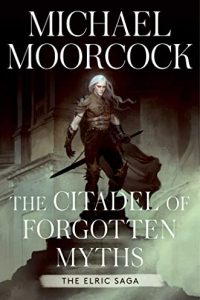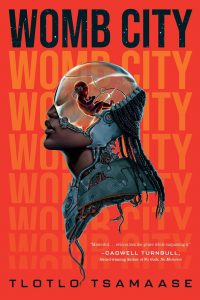Ian Mond Reviews Rakesfall by Vajra Chandrasekera
 Rakesfall, Vajra Chandrasekera (Tordotcom 978-1-25084-768-3, $27.99, 304pp, hc) June 2024.
Rakesfall, Vajra Chandrasekera (Tordotcom 978-1-25084-768-3, $27.99, 304pp, hc) June 2024.
To quote Tom Clancy (or was it Jeff Bezos?), it takes ten years to become an overnight success. I suspect Vajra Chandrasekera can relate. He spent a decade working on his craft, with short fiction published in various genre magazines and anthologies. Then, last year, Chandrasekera published his first novel, The Saint of Bright Doors, which immediately caught fire, drawing plaudits and praise from critics and fans. Fast-forward to the present day, and the novel has been nominated for multiple prizes (the Hugo, the Nebula, the Lammy) and recently took home the Crawford award. I featured The Saint of Bright Doors on my Locus “Year in Review” essay and spoke ecstatically about the novel on The Writer and the Critic podcast. What makes it such an astonishingly good debut is Chandraesekera’s boldness – the imaginative, radical manner in which he fuses science fiction and fantasy, social realism, and surrealism. But if The Saint of Bright Doors is an experimental novel in (mostly) conventional storytelling clothing, Rakesfall bares it all, a full-frontal deconstruction of narrative and genre.
Five of the 32 chapters that comprise Rakesfall first appeared in magazines and anthologies, including the opening two chapters, which are styled as a TV recap of a series unimaginatively named Show. Show centers on two childhood friends, Annelid and Leveret (not their real names, but nicknames chosen by Annelid), teenagers brought up amidst Sri Lanka’s near-30-year civil war. Our narrator explains that their adventures, told across four seasons, have generated a massive following, a fandom so large they’ve broken into ideological factions. A key debate concerns the nature and meaning of the “Documentary,” a production watched by school students about the “Outside,” the world where our narrator and the rest of fandom reside. Except they’re not really fans. They’re ghosts, spirits, an audience who have died “hundreds of thousands of times, whether in war, under war, or astride war; in shootings and bombings and shellings and camps and pogroms and hospitals.”
Like so many TV series cancelled before their time, Show ends on a cliffhanger with Annelid, possessed by a demon, killing Leveret. But it’s not the end of Annelid and Leveret’s story. With souls entwined, they live countless lives across time and the multiverse, taking on different bodies and names. As they push “themselves through a dying narrative,” born and reborn, we learn about the Yoke and the Rake, a genre re-imagining of Hindu demons and spirits, and we’re taken to the final sputtering of humankind, where a desperate battle is taking place on a dead Earth about to be swallowed by a dying sun.
The patchwork, “fix-up” quality of Rakesfall means it never settles into a narrative groove. The setting, the voice, and the structure regularly change, forcing the reader to pause, to re-evaluate what’s happening. The most “straightforward” section is when Annelid and Leveret, now named Vidyucchika and Lambajihva, are reborn on Luriat, the same Luriat of The Saint of Bright Doors. Even here, I couldn’t help but feel a little discombobulated, especially when I realised that Leveret/Lambajihva is now a maggot-ridden corpse (having previously existed as a pelt that Vidyucchika wears as a second skin). But while I might have been bewildered, I never felt lost. If anything, my mind was all abuzz, striving to keep hold of the threads, the intricate web, that ties these lives, these realities together.
What propels the narrative isn’t so much the dramatic set pieces (though the novel isn’t short on those; several of the chapters set in the far future are genuinely jaw-dropping) but the constant flood of ideas and new ways of thinking and perceiving the world. Chandrasekera reconceptualises Hindu and Buddhist beliefs such as akasha or the Akashic Record. He reframes Sri Lanka’s history of European colonialism as a play with a distinctively postmodern vibe. He brilliantly breaks the narrative to tell us a fable about Heroes, Wasps, and Kings and deliberately leaves out the moral (because “this is history rather than a story”). He depicts a far future where tech lords and multinationals have devastated the Earth and have now colonised digital space, including the singularity. And undergirding this flurry of invention is a voice that is sometimes plain, sometimes wry and knowing, but more often than not overwhelmed with grief and anger. And even here, when the story is at its most vibrant, there’s an awareness, a recognition that a novel this playful, erudite, and caustic has its limits when recalling the histories, the stories, and the beliefs of those who died for the sake of Empire, progress and profit; a sentiment voiced by the same audience of the dead, the victims of war and imperialism, we met at the start of the novel:
Is it so bad to want to be remembered, to have and to hold? But maybe it’s exploitative to attempt truth in fiction, maybe it is mere commodification only, maybe fabulism strips histories of whatever divinity realism might have to offer – or maybe it’s the other way around, maybe it’s mimesis that takes away history’s dreams and fantasies, makes it small and lonely and vulnerable in a haunted world.
Rakesfall may not seem as polished as The Saint of Bright Doors, but in my mind, it cements Chandraesekera as one of the genre’s most important, most vital voices.
Ian Mond loves to talk about books. For eight years he co-hosted a book podcast, The Writer and the Critic, with Kirstyn McDermott. Recently he has revived his blog, The Hysterical Hamster, and is again posting mostly vulgar reviews on an eclectic range of literary and genre novels. You can also follow Ian on Twitter (@Mondyboy) or contact him at mondyboy74@gmail.com.
This review and more like it in the June 2024 issue of Locus.
 While you are here, please take a moment to support Locus with a one-time or recurring donation. We rely on reader donations to keep the magazine and site going, and would like to keep the site paywall free, but WE NEED YOUR FINANCIAL SUPPORT to continue quality coverage of the science fiction and fantasy field.
While you are here, please take a moment to support Locus with a one-time or recurring donation. We rely on reader donations to keep the magazine and site going, and would like to keep the site paywall free, but WE NEED YOUR FINANCIAL SUPPORT to continue quality coverage of the science fiction and fantasy field.
©Locus Magazine. Copyrighted material may not be republished without permission of LSFF.








It was Eddie Cantor: It takes 20 years to make an overnight success.
I’ve heard that one since I first started doing anything in the dramatic arts, so back as long ago as 1968, and it wasn’t new then.